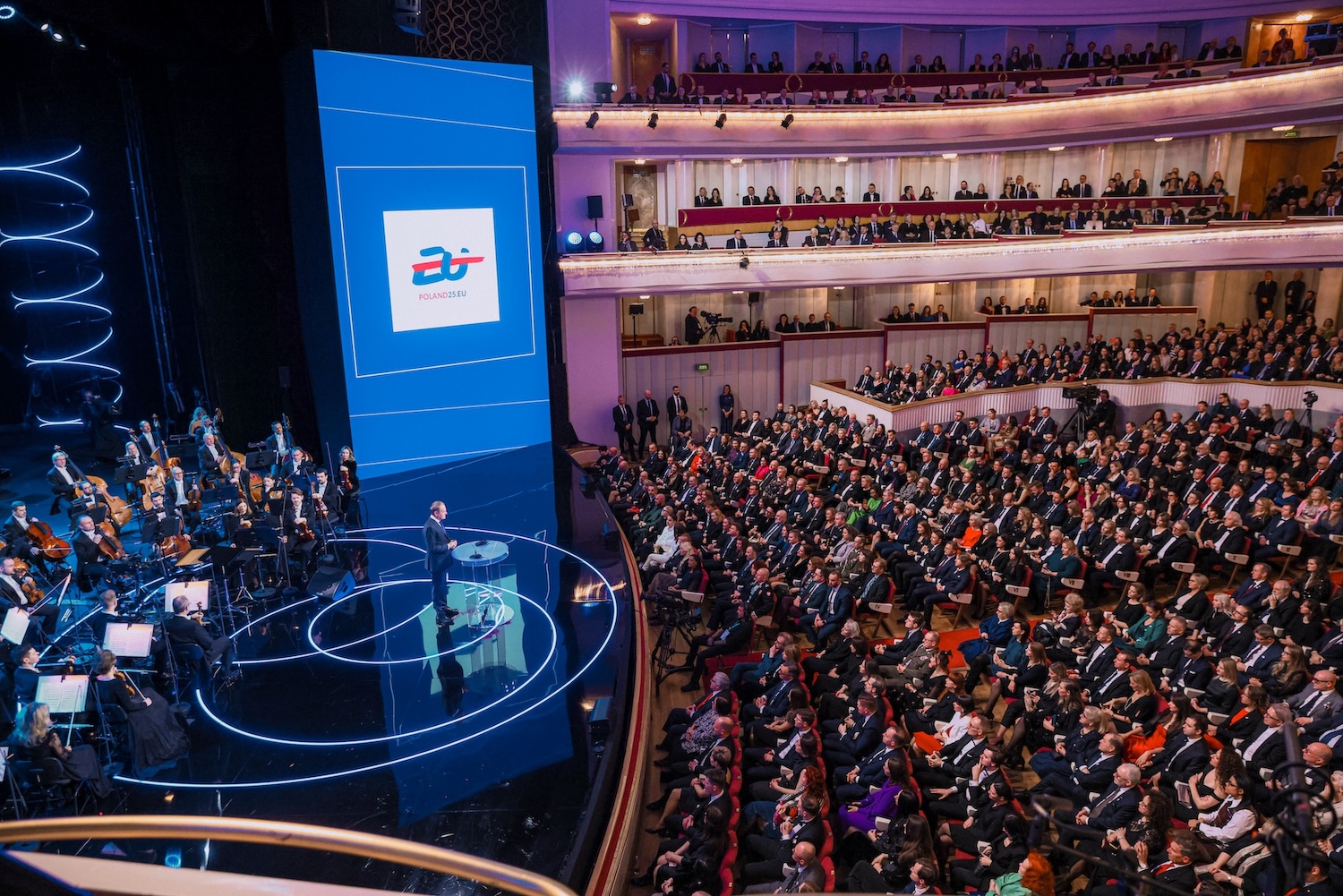Open letter on the occasion of Polish Presidency of the Council of the European Union
On the occasion of Poland assuming the Presidency of the Council of the European Union, we, as the Knowledge Rights 21 (KR21) initiative, are publishing our open letter.


Autor: Krystian Maj, Kancelaria Prezesa Rady MinistrĂłw
As Poland assumes the Presidency, we hope that, as leaders, we will seize the opportunities that come with this role to strengthen pro-social initiatives in Europe. The Presidency takes place at a pivotal moment, providing the chance to set the appropriate tone and direction for new changes in European regulations concerning innovation (including the rapidly developing field of artificial intelligence), copyright law, research, and access to education and knowledge at all levels, leveraging the potential of culture.
As Centrum Cyfrowe, we serve as the National Coordinator for the KR21 initiative in Poland. The goal of KR21 is to enhance access to knowledge (research, education, and culture) across Europe by building a strong and sustainable network of advocates supporting the implementation of legal and policy reforms. We support change, bridge-building, and creating spaces for dialogue and understanding necessary to address the needs of libraries, research, education, and culture. We believe that knowledge is fundamental to education, innovation, and cultural participation, and that everyone should have access to it – particularly through libraries, archives, and digital platforms – and be free to use it.
Open Letter to the Polish Presidency
Your excellency,
We are writing to you as the Knowledge Rights 21 campaign, which works to advance the interests of researchers, innovators, educators, learners, readers and the libraries that support them.
As the first full presidency under the new mandate of the European Commission and Parliament, Poland has a unique possibility to shape the agenda for the coming five years. In particular, you are first in line to build the response to the challenges and opportunities set out in the Letta and Draghi reports.
The Programme you have set out gives plenty of reasons for optimism.
We strongly welcome your emphasis on the importance of openness and synergies as the guiding themes of your work around research. Europe is a world leader in advancing open access and open science, and we trust that it will continue to be so under your presidency. In turn, this openness is the only way in which we can realise a true knowledge union, making the most of the insight and energy of researchers everywhere in Europe.
In this context, we look forward to the Council Conclusions on the European Research Area giving a central role to Open Science, and in this context, building on the exemplary work already started under the previous Policy Agenda on ensuring supportive legislative frameworks. This has underlined both the evidence of the need for reform and the widespread support for this, outside of some isolated voices. Now is the time to act.
Central to this will be steps to ensure synergies – not just between funding streams, but also between national and European legislative initiatives. First of all, it is time to overcome the fragmentation of national laws that affect research. We need to bring these up to date with the needs of researchers today, and making access to data and enabling cross-border collaboration the default.
We are also concerned that despite research representing a political and funding priority, not enough is being done to align the EU’s own legislation in other areas to this – in particular copyright and data. The inconsistencies undermine the impact of Horizon Europe and wider initiatives, notably in support of knowledge valorisation. We believe that the Conclusions on Horizon Europe should recognise the need for policy synergies as well as those between funding programmes.
The launching of work on a horizontal Single Market agenda, delivering on the call for a Fifth Freedom, is an important opportunity to make this happen. A comprehensive assessment of where the EU acquis (or the lack of it) is holding back the knowledge flows essential for research is long overdue, and could also serve to accelerate work to strengthen the European Education Area – another priority you have established. Similarly, we hope to see concrete action to ensure that the Better Regulation agenda works to support and enable research.
Ongoing work around artificial intelligence will offer a key test. Support for efforts to encourage the uptake of AI in science, as well as to advance AI research will be undermined if, in parallel, we make it harder to use legitimately accessed data for training. Europe must ensure that the interests of research and education are prioritised, and that regulation, where required, is designed to support these while addressing problems through a proportionate and risk-based approach.
Outside of research, we trust that the Presidency will take all opportunities to support access to knowledge and culture through libraries. We are concerned that the impact of efforts to maximise access to out-of-commerce works, through the provisions of the 2019 Directive on Copyright in the Digital Single Market, are not being realised. This calls for a more fundamental assessment of whether current market and licensing models are really working for libraries and their users.
We look forward to sharing research and insights to support work in these areas.
21 January 2025
